
To subscribe to the fortnightly ALGA News, please click here.
-
National Road Safety Week 2020 is being launched to coincide with United Nations World Day of Remembrance for Road Victims on Sunday. The Yellow Ribbon National Road Safety Week – running from 15-22 November – is intended to raise public awareness about the level of road trauma, and to improve outcomes. While road deaths and+
Posted 13 November, 2020 -
Australia‘s urban canopy cover continues to increase, with the City of Launceston the stand-out local government performer over the past four years. In the period 2016-20, tree-cover in the northern Tasmania local government area increased 9.5 percent, according to the 2020 update of a national benchmark of urban canopy cover begun in 2013. The report,+
Posted 13 November, 2020 -
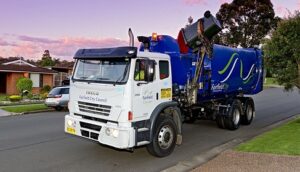
Local government spent $595 million on household waste collection, treatment, and disposal services in 2018-19, new statistics show. The Australian Bureau of Statistics’ Waste Account published last week showed households generated 12.4 million tonnes of waste in 2018-19. This was 16 percent of all waste generated in Australia, and up five percent since 2016-17. Households+
Posted 13 November, 2020 -

Directly funding local government investment in the arts would help grow Australia’s $112 billion creative and cultural economy, ALGA has told a federal parliamentary inquiry. In a submission to a House of Representative inquiry into Australia’s creative and cultural industries and institutions, ALGA said recognising councils as arts organisations (thereby making them eligible to apply+
Posted 13 November, 2020 -
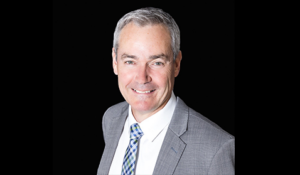
Those who have read the bushfire royal commission’s final report would probably agree it is a compelling document from which the local government sector can take some comfort – except for what it missed. Although the report is cogent, it could – and should – have been broader in its perspectives, stronger in its language,+
Posted 6 November, 2020 -
The National Homelessness Conference has been relaunched as an online event after the face-to-face event in Canberra was cancelled. Jointly convened by the Australian Housing and Urban Research Institute (AHURI) and Homelessness Australia, the conference will feature policy makers, researchers and those with lived experience of homelessness discussing strategies and solutions. Among the speakers will+
Posted 6 November, 2020 -
How people use their mobile phones is changing rapidly – propelled by the rollout of 5G technology promising higher data access speeds, low latencies, and greater reliability. Local governments support more connected communities but often find themselves conflicted on the installation of facilities to widen 5G coverage. Processing applications for installing new equipment, including managing+
Posted 6 November, 2020 -
Nancy Pierorazio outlines the steps the council has taken to prevent violence against women. In 2013, the City of Melbourne developed its first Preventing Violence Against Women (PVAW) Strategy and action plan, which guided our work in the primary prevention and early intervention space. Actions included the development of workplace policies and procedures to promote+
Posted 6 November, 2020 -
Canberra has been rated as Australia’s most bike-accessible city using a new tool that local government can apply to making riding easier. The tool was developed by the Bicycle Transport Analysis (BTA) project – and uses open-source, publicly available data. Peter Bourke, who led the BTA project for We Ride Australia, says the tool can+
Posted 6 November, 2020 -
Plans for a Perth trackless tram service have received a boost, with the Federal Government tipping $2 million into a business feasibility study. Trackless trams do not require rails and can operate on existing roadways, making the technology easier and less expensive to incorporate into established transport systems. The Perth proposal is for a trackless+
Posted 6 November, 2020 -
Donald Shoup, the American urban planner who first drew attention to the true costs of off-street parking, will speak at a WA Local Government Association event next month. In his 2005 book, The High Cost of Free Parking, Mr Shoup argued that free parking has contributed to car dependence, rapid urban sprawl, wasteful energy use,+
Posted 6 November, 2020 -
Round 2 of the accelerated Fixing Local Roads program, funded by the Federal and NSW governments, opened on Monday. Projects that can start this financial year and be delivered within two years will be given funding priority, NSW Minister for Regional Transport and Roads Paul Toole said. In June, the Federal Government committed $191 million+
Posted 6 November, 2020 -
Councils now have until 30 November to update their asset data details as part of the Australian Local Government Association’s National State of the Assets (NSoA) project. This long-term project is about enabling ALGA and its State and Territory Association members to reinforce a clear case to governments on how investment in local government infrastructure+
Posted 6 November, 2020 -
The Australian Packaging Covenant Organisation (APCO) has launched a new program to track the progress of national packaging targets. The 2025 National Packaging Targets Monitoring Program highlights seven areas across the packaging value chain considered vital to ensuring that the 2025 targets are realised. According to APCO, the Monitoring Program provides a “series of staged+
Posted 6 November, 2020 -
Applications have opened for local groups and organisations to secure federal funding to develop reskilling, upskilling and employment projects. The Federal Government intends the Local Recovery Fund to help boost employment prospects across 25 regions impacted by Covid-19. Local groups and organisations can apply to receive funding ranging from $10,000 to $200,000, to develop projects,+
Posted 6 November, 2020 -
Round 2 of the Commonwealth’s Regional Airport Program (RAP) has opened with new guidelines for small local governments and Indigenous corporations. Councils and corporations with projects valued at $300,000 or less may seek funding for 100 percent of eligible project costs. Eligible projects can include: upgrading runway surfaces; upgrading stormwater drainage; installing or upgrading runway+
Posted 6 November, 2020 -
It will no longer be mandatory to screen passengers at some regional airports under new Commonwealth rules being rolled out on 19 December. The new federal regulations follow a review of the risk profiles of airports conducted by the Department of Home Affairs. As a result, the department is introducing a new “tier” framework which+
Posted 6 November, 2020 -
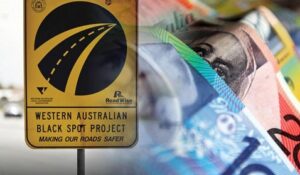
The Commonwealth should boost funding for road safety, including the Black Spot Program, and work more closely with other governments to reduce road trauma. In a report published last week, the Joint Select Committee on Road Safety – established in August 2019 to inquire into the steps that can be taken to reduce road accident+
Posted 6 November, 2020 -
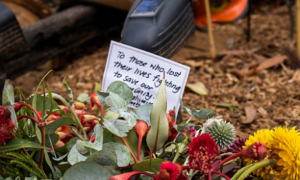
A long-term strategy is needed to bolster Australia’s resilience to natural disasters, along with greater support for local government, the bushfires royal commission said last week. In a statement accompanying the tabling of the report of the Royal Commission into National Natural Disaster Arrangements, Commission chairman Mark Binskin said: “While state and territory governments have+
Posted 6 November, 2020 -

The call for Australians to acquire new skills or train for completely new roles has become louder in recent months – and it has created opportunities for us. Covid-19 is the reason federal and state governments are talking up the need for greater flexibility and skills development – particularly at the vocational level – and+
Posted 30 October, 2020 -
A new body – the Regional Activators Alliance – has been launched to help drive population to the regions. The alliance, whose members include councils and Regional Development Australia committees, is a Regional Australia Institute initiative to promote living, working, and investing in regional Australia through a national awareness campaign. The institute’s CEO, Liz Ritchie,+
Posted 30 October, 2020 -
A grants program for digital-savvy businesses in regional Australia has been launched by NBN Co. Business-led initiatives in health, the arts, education, agriculture, tourism, women in regional business, and indigenous businesses will be eligible for $10,000 grants. In addition, NBN Co will award $25,000 to one regional/remote business or individual. Applications for the grants program+
Posted 30 October, 2020 -
BY VESNA ROZMAN Working collaboratively in the domestic and family violence prevention space was not new to the City of Charles Sturt. We had been working solidly with our local community, neighbouring councils and peak bodies to better the lives of women and children in our western region of Adelaide for the previous five years.+
Posted 30 October, 2020 -
An eco-friendly zero-cement concrete that all but eliminates corrosion has been developed by researchers from RMIT University. Concrete corrosion in wastewater pipes is a significant maintenance issue, as are residual lime leaks that contribute to the formation of fatbergs – congealed lumps of fat, grease, oil and non-biodegradable wipes and nappies. But RMIT engineers have+
Posted 30 October, 2020 -
The CRC for Water Sensitive Cities has released new tools to facilitate liveability and amenity in infill developments, particularly usable green space. Noting that infill development is promoted nationwide as a way of accommodating growing urban populations, the Cooperative Research Centre says current infill patterns “increase building footprint and thus imperviousness of the redeveloped lot,+
Posted 30 October, 2020 -
Waste industry stakeholders have generally welcomed Federal Budget spending measures designed to facilitate a circular economy. According to the new Parliamentary Library brief, the Australian Council of Recycling (ACR) expressed concerns in 2019 that “4.5 million tonnes of waste could end up in domestic landfill without major public investment”. The ACR stated that the COAG+
Posted 30 October, 2020 -
The Insurance Council of Australia is holding a webinar series next month to help councils make best use of the insurance industry’s post-disaster coordination arrangements. The ICA, the representative body of the general insurance industry in Australia, works closely with each level of government to ensure disaster recovery processes are harmonised and effective. To that+
Posted 30 October, 2020 -
The Greater Dandenong local government area has the highest rate of family-related violence offences in metropolitan Melbourne. So, to change attitudes and behaviours, the City turned to its youth and the power and immediacy of video in an innovative project that won it a 2020 National Award for Local Government in the category of “Addressing+
Posted 30 October, 2020 -
The CSIRO has identified aquifers in the Murray-Darling Basin it says could be used for long-term underground water storage and to enhance water security. The aquifer regions, which include areas around the Warrego River, Condamine-Culgoa Rivers, Darling River, Macquarie-Bogan Rivers and Namoi River, could potentially store than 200 gigalitres, CSIRO researchers say. Study co-author Declan+
Posted 30 October, 2020 -
Four telecommunications providers are getting $8.3 million in Federal funding to provide bushfire-threatened communities with temporary mobile and broadband facilities. The grants are being provided under the Strengthening Telecommunications Against Natural Disaster (STAND) package and will enable NBN Co, TPG Telecom, Telstra, and Optus to provide temporary telecommunications facilities and equipment such as cells on+
Posted 30 October, 2020 -
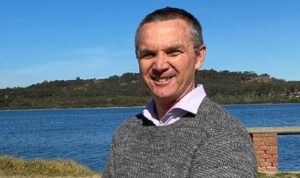
The Black Summer bushfires have put out a whole new lens on local infrastructure resilience says a civil engineer eminently qualified to know. Warren Sharpe OAM is Eurobodalla Shire Council’s Director of Infrastructure Services, and he was also the shire’s Emergency Management Officer during the fires that left local communities throughout the NSW South Coast+
Posted 30 October, 2020 -
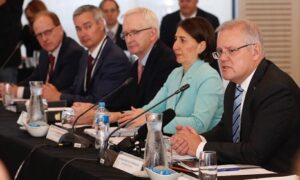
The Australian Local Government Association will be a member of the National Federation Reform Council (NFRC) and will continue to be involved in relevant meetings and national bodies. However, nearly two dozen former COAG councils and ministerial forums will be disbanded under new streamlined intergovernmental structures revealed last week. Prime Minister Scott Morrison outlined the+
Posted 30 October, 2020 -

With even Tasmania and Queensland border controls easing, infection numbers falling, bushfire recovery underway, and drought still with us but in fewer places, it’s time to turn our minds to creating a brighter future. Talk has begun about how we can make Australia a better place post-Covid – it is an important conversation and a+
Posted 23 October, 2020 -
The Nation Transport Commission (NTC) wants input on a national approach to in-service safety for automated vehicles. To inform the process, the NCT published a discussion paper last week outlining proposals for what the national law will entail and how it will work under two different legislative implementation options. It follows an agreement by transport+
Posted 23 October, 2020 -
Stephanie Alexander’s Kitchen Garden Foundation is thriving, in part because of the continuing support of councils in Victoria. Established in 2004, Ms Alexander’s not-for-profit foundation works with around 2000 schools (many of them in Victoria) to teach children how to grow, harvest and prepare fresh produce. Following the foundation’s launch of a professional development and+
Posted 23 October, 2020 -
There are few more effective ways for councils to enhance the liveability and economic sustainability of local communities than through the arts. However, reaching young adults from disadvantaged backgrounds presents challenges – one the City of Wanneroo council solved in a novel way. It used DJing to appeal to youths from a suburb with high+
Posted 23 October, 2020 -
An interconnected trail network across seven Melbourne local government areas has been recognised with an Australian Urban Design Award (AUDA). The Eastern Regional Trails Strategy was developed by Fitzgerald Frisby Landscape Architecture and the cities of Boroondara, Knox, Manningham, Maroondah, Monash, Whitehorse, and Yarra Ranges. Judges said the strategy addressed significant impediments to achieving high+
Posted 23 October, 2020 -
The 2020 edition of the Emergency Planning Handbook is being launched next week with a webinar featuring leading experts discussing preparedness principles and practice. The new handbook provides nationally agreed principles for good practice in emergency planning and reflects changes in the field of disaster risk reduction, emergency management and more broadly in society since+
Posted 23 October, 2020 -
The federal Department of Infrastructure, Transport, Regional Development and Communications has published design options for Round 5A of the Mobile Black Spot Program. A new program design was considered necessary because under the existing guidelines fewer sites are likely to be successfully funded in the future. The draft Guidelines for Round 5A outline the eligibility+
Posted 23 October, 2020 -
Urban water utilities must embrace a new circular future as the traditional “linear” approach to providing drinking water and treating and disposing of wastewater is now unviable. The Water Services Association of Australia says this is particularly true in the Australian and New Zealand context, where most urban centres are vulnerable to variable and declining+
Posted 23 October, 2020 -
Nearly 394,000 tonnes of plastics were recycled in 2018-19, a 23 percent increase on the previous year, a new Federal Government survey shows. In all, 3.5 million tonnes of plastics were consumed in Australia in the 2018-19 financial year. Of the 393,800 tonnes of plastics collected for reprocessing, 203,100 tonnes (52 percent) were reprocessed in+
Posted 23 October, 2020 -
Applications for the $68.6 million Local Economic Recovery program, co-funded by the Federal and Victorian governments, open on 27 October. Sixty percent of the fund (or $42 million) will be dedicated to regional economic projects and programs, and 40 percent will go to local community projects. As part of the $42 million regional economic stream,+
Posted 23 October, 2020 -
By COUNCILLOR JUSTINE BROOKS When I proposed that George Town – a small council even by Tasmanian standards – develop a domestic, family and sexual violence strategy, the responses were understandable: What would the financial implications be, and how could we afford to get involved in “non-core business”? My reaction? How can we afford not+
Posted 23 October, 2020 -

Tasmania’s Derwent Valley Council was established on 2 April 1994 and includes the localities of Bushy Park, Maydena, and Strathgordon, with New Norfolk being the major town. Ben Shaw was elected to Council as Deputy Mayor in 2014 and became Mayor in 2018. He was elected Vice President of the Local Government Association of Tasmania+
Posted 23 October, 2020 -

Councils can learn a lot about the effectiveness of their communication with local audiences and stakeholders during a crisis like Covid-19. Communications expert Neryl East points to increased levels of public trust in local government during the pandemic as proof that councils have largely been reliable sources of information in 2020. “The health measures imposed+
Posted 23 October, 2020 -

Eliminating council oversight of new mobile phone base stations would represent an unacceptable erosion of environmental and public safety standards, the Australian Local Government Association (ALGA) warned this week. In a submission responding to proposals outlined in a consultation paper published last month on “Improving the telecommunications powers and immunities framework”, ALGA said carriers generally+
Posted 23 October, 2020 -

The Commonwealth’s support for, and regulation of, regional aviation – always a vexed matter for airport-owning councils – is up for serious discussion. The Department of Infrastructure, Transport, Regional Development and Communications published an issues paper this week suggesting the Federal Government will consider: Reducing the regulations to encourage greater competition and local investment; Greater+
Posted 16 October, 2020 -
The National Transport Commission completed 13 projects in 2019, including preparing advice for a national approach to regulating automated vehicles. In its Annual Report 2019-20 published this week, the NTC also listed its “comprehensive engagement program” for the Heavy Vehicle Law review as another achievement across its four program areas. The commission said it facilitated+
Posted 16 October, 2020 -
A new steering committee for the Global Covenant of Mayors for Climate and Energy in Oceania (GCoM) has met for the first time. The committee, comprising the mayors and governors of 12 cities in Australia, New Zealand and PNG, aims to boost collaboration between cities, local governments and community partners globally to reduce carbon dioxide+
Posted 16 October, 2020 -
An updated Australian Government Crisis Management Framework (AGCMF) came into effect on Monday 12 October. Version 2.3 of the crisis framework outlines the arrangements enabling the Federal Government’s “all hazards” crisis management approach and is focused mainly on near-term crisis preparedness, immediate crisis response and early crisis recovery arrangements. Long-term disaster risk reduction and resilience-building+
Posted 16 October, 2020 -
State and local government strategies to reduce and manage bushfire risks must concentrate on fuel management, Victoria’s Auditor-General has advised. To ensure Victoria’s strategies to reduce and manage bushfire risks are well-designed, efficiently deployed, and continuously monitored and improved, the Audit Office examined whether responsible agencies were effectively working together to reduce Victoria’s bushfire risk.+
Posted 16 October, 2020 -
When Busselton Shire Council decided to build a regional aerodrome in the early 1990s (replacing a small and unsuitable 1940s-era airstrip), the primary users were envisaged to be general aviation operators. However, the shire (now the City of Busselton Council) had another, longer-term vision – creating an asset capable of boosting regular public transport (RPT)+
Posted 16 October, 2020


